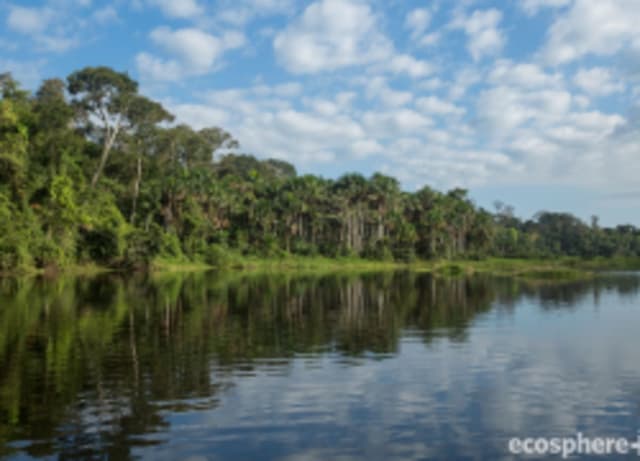Go the extra mile
Towards a cooler planet
Rewilding: A natural path to restoring nature
20 June 2024
The urgency of climate change demands innovative solutions. Rewilding – the large-scale restoration of natural ecosystems – emerges as a powerful tool. It's a natural path towards addressing climate change, fostering biodiversity and ecological resilience along the way.
Beyond restoration: The power of rewilding
Rewilding goes beyond traditional restoration efforts. It focuses on reintroducing missing species, restoring natural processes, and establishing self-sustaining ecosystems that mirror their historical state. This holistic approach isn't just about revitalising biodiversity; it unlocks nature's inherent ability to capture and store carbon.
Rewilding and biodiversity enhancement:
By reintroducing keystone species and restoring natural predator-prey dynamics, rewilding projects create a ripple effect that benefits entire ecosystems. Let's explore some key advantages:
- Soaring species diversity: Reintroduced herbivores and predators revitalize food webs, allowing for the return of various plant and animal species.
- Enhanced ecosystem complexity: Restored natural processes like grazing and seed dispersal contribute to a more diverse and resilient ecosystem structure.
- Improved ecosystem services: Healthy ecosystems provide essential services like water filtration, flood control, and pollination, benefiting both humans and wildlife.
A powerful carbon weapon
Rewilding plays a crucial role in addressing climate change through several mechanisms:
- Forest restoration: Reintroducing native trees and vegetation leads to increased carbon storage in biomass and soil, acting as natural carbon sinks.
- Improved soil health: Healthy, functioning ecosystems with diverse plant communities promote soil carbon sequestration by enhancing organic matter decomposition and retention.
- Reduced emissions: Rewilding can help reduce emissions from land-use changes like deforestation and unsustainable agriculture.
A case study: Rewilding in action
CarbonClick actively supports rewilding projects worldwide. Take the Banks Peninsula Forever Forest in New Zealand as an example. Here, a 190-hectare property has been retired from grazing and is undergoing a transformation back to native forest. This restored forest will provide the seed source for further natural regeneration alongside supplementary planting efforts. Preserving this native forest improves water quality for nearby rivers and coastal waters. This project not only contributes to biodiversity but also sequesters significant amounts of carbon, aiding in addressing climate change.

Challenges and the road ahead
Despite its immense potential, rewilding faces some hurdles:
- Long-term commitment: Rewilding projects often require sustained effort and resources over decades to achieve their full ecological impact.
- Social and economic considerations: Reintroducing top predators or altering land-use practices can raise concerns among local communities. Careful stakeholder engagement and collaboration are crucial.
- Monitoring and evaluation: Establishing robust monitoring protocols and evaluating the long-term ecological and carbon sequestration outcomes of rewilding projects is essential.
However, the future of rewilding is promising, driven by advancements in:
- Ecological restoration techniques: Ongoing research and development are refining methods for reintroducing species and restoring natural processes effectively.
- Policy and funding mechanisms: Supportive policies and innovative funding models can incentivize and facilitate large-scale rewilding initiatives.
- Community engagement: Building strong partnerships with local communities is essential for the success and long-term sustainability of rewilding projects.
A natural path forward
Rewilding offers a powerful and natural approach to addressing climate change by promoting biodiversity, restoring ecological balance, and enhancing carbon sequestration. As we move forward, continued research, collaboration, and innovative solutions are needed to unlock the full potential of rewilding and achieve a more sustainable future for our planet.
Take action today!
- Get involved: Engage with organisations and initiatives promoting rewilding efforts in your region.
- Advocate for change: Support policies that encourage large-scale ecological restoration projects.
- Stay informed: Keep yourself updated on advancements in rewilding research and best practices.
Partner with CarbonClick
CarbonClick actively supports rewilding projects around the world. By choosing to offset your carbon footprint with CarbonClick, you directly contribute to these crucial initiatives and support a more sustainable future.
17 South Street
Auckland 1010
New Zealand
info@carbonclick.com- -
- X
Sign up. Be inspired. Get clicking.
Subscribe now to stay up to date with CarbonClick, carbon offsetting and climate action.
By signing up you agree to our Privacy Policy.


